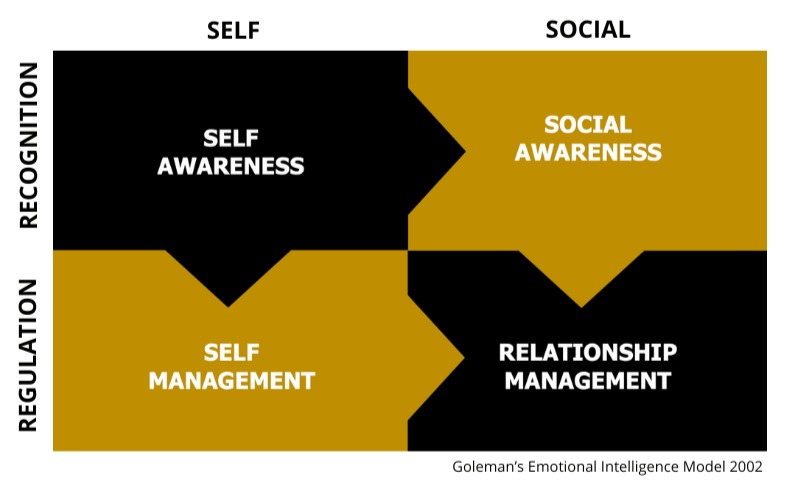The Power of Self-Management: Overcoming Fear and Getting Out of Your Own Way
Have you ever wanted to give up and take the easy path in life?

Give up your dream because things get too hard, or you are not achieving the desired outcomes?
It is easy to think there must be a more straightforward way, and there often is, as it all depends on the approach you are taking now!
The big question is, what is the easy path in life? This is a question that will mean something different to every person who asks it. It all comes down to our beliefs and dreams about how we want our life to be. Many people do not even think about it. For others, these types of thoughts consume them. The more we know what we want to achieve in life, our dreams and aspirations, the more we can embrace all possibilities for a life of meaning and purpose. The only thing that can stop us is ourselves because, as Ralph Marston, a well-known author of motivational messages, reminds us, "There are plenty of difficult obstacles in your path. Don't allow yourself to become one of them."
To succeed in life, we need to decide what we want. Life is a gift; being alive and part of humanity is the greatest gift we all receive, so what we do with our time here is important to consider. Many people go through life not doing this, not even thinking about what they want to achieve, then arrive at the end and regret what they did not do. It does not matter what stage you are at; there is always time to decide to make changes and achieve more of what you want in life. Leading yourself and succeeding in achieving your life aspirations is what being alive is all about.
Success means different things to different people, and all that matters is what it means to you because nothing has meaning other than what you give it. So, deciding what success means to you is the starting point. The next step is deciding how to lead your own life. It starts with setting goals and having a plan to achieve them!
Setting goals is essential to success in business and life, and our beliefs about what is possible are compelling when it comes to achieving what we want. Our level of emotional intelligence influences how we show up to achieve our dreams, aspirations, and goals. We need to be able to get out of our way to lead and head towards the success we desire. This starts with a conscious awareness of what success means to you and what you are willing to do in developing the leadership skills to achieve it!
Leadership involves being aware of what is needed for personal growth because, so often, what is in the way is the way and when we can get out of our way to lead and succeed with what we want, anything is possible. Yes, the obstacles will still be there: the challenges, the roadblocks, the self-limiting beliefs and maybe even the insurmountable difficulties. However, if your awareness of dreams, aspirations and goals is solid and transparent, anything is possible. All you need is the strategies to navigate the challenges and obstacles that will get in your way to achieving your goals and success. We mostly get in our way because of fear and self-sabotage. When we self-sabotage, we allow our fear of failure, or maybe even fear of success, to stop us from achieving our dreams.
Understanding how we manage ourselves and our emotions is crucial to get out of our way. Self-management is one of the four domains of emotional intelligence developed by Daniel Goleman.

Here are three critical self-management skills to build on.
#1 Accountability.
Accountability is defined as an obligation or willingness to accept responsibility or account for one’s actions and is one great strategy to stay motivated. Strategies to hold yourself accountable include:
-
Having an accountability partner - someone you trust to help you keep your commitments to yourself.
-
Accepting responsibility - when things go wrong, own it, and don't beat yourself up.
-
Reflect on episodes of self-sabotage - understanding your thinking patterns without judging them will decrease the likelihood of empowering those thoughts with your actions.
-
Set and measure goals - this is an effective way to focus attention on essential things.
-
Reflect on your purpose - your big 'why' can guide your decisions and actions.
-
Hang out with the right crowd - we become the average of the five people we hang out with.
#2. Emotional Regulation.
Emotional regulation is the ability to manage and respond to emotional experiences effectively. It is about managing our emotions to make decisions with rational thought. Strategies to build on emotional regulation include:
-
Become familiar with your inner world - accept and embrace what is happening within and use this power to make your way through uncomfortable emotions to become more powerful than your thoughts.
-
Process emotions - name the emotion, own it by saying why you feel it, feel and be with it, breathe to release it, and when you are ready, let it go.
-
Take care of your health and wellness - the mind and body influence each other in complex ways, so physical illness can make managing your mental well-being more difficult.
-
Practice patience - experience fewer negative emotions by practising being patient and therefore help you avoid or recover from burnout.
-
Breathe deeply - deep breathing exercises can play a positive role in managing stress and emotions.
#3. Organisational skills.
Organisational skills allow you to use your resources efficiently, effectively, and flexibly. This means you can manage your time, energy, and space well, supporting you in accomplishing what you want successfully. Strategies to develop good organisational skills include:
-
Set short and long-term goals and measures - long-term and short-term goals help visualise and shape the future as they break down big ideas and aspirations to help you channel your focus and resources.
-
Prioritise important tasks and manage daily to-do lists - prioritisation is a powerful skill that will help you take control of your workflow and optimise productivity.
-
Perform one task at a time - single-tasking to focus on one thing at a time, the one task that will achieve higher-quality results. Multi-tasking is more stressful and less productive.
-
Automate and outsource - if a task repeats, automate it. If a task requires specific expertise, outsource it. If a task is a routine, streamline it.
-
Set up effective morning routines - review your habits to feel focused and ready for a productive day.
These strategies can support you in developing your self-management skills and ability to achieve results in line with your goals. When goals are accomplished, you are well on the way to succeeding with your aspirations and dreams for the future you want to have. Making decisions today that your future self will thank you for is a powerful way to get out of your way to lead and succeed in business and life.
If you would like support to further develop the ability to manage yourself, your team, and your business, book your Complimentary Strategy Session with a lead coach at Leaders Network.





